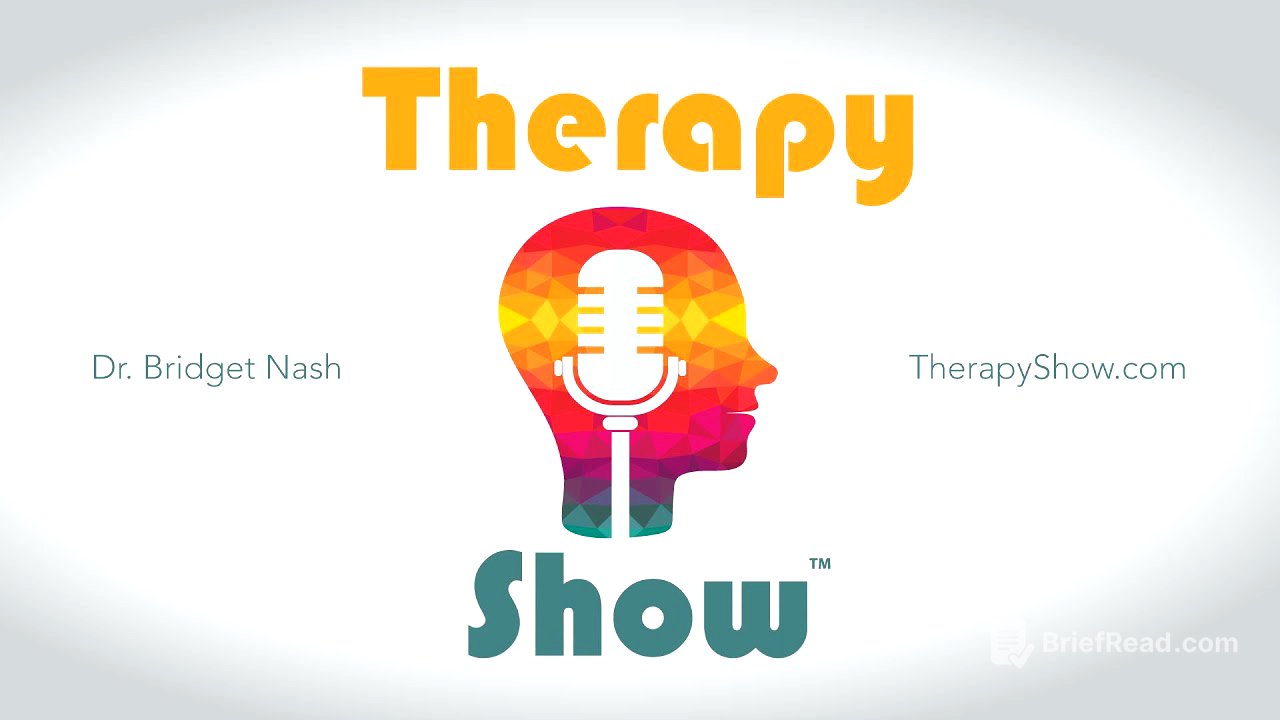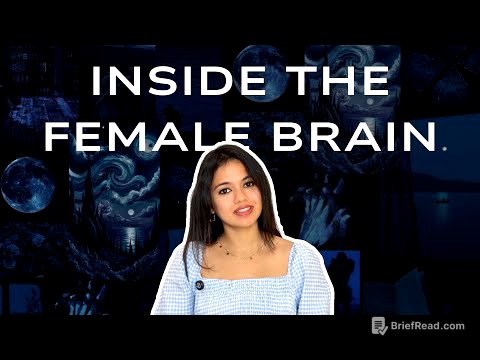TLDR;
Dr. Stefan Hoffman discusses anxiety disorders, CBT, and mindfulness. He explains the purpose of anxiety, the difference between fear and anxiety, and risk factors for anxiety disorders. He also touches on the importance of addressing avoidance, the interaction of physical, cognitive, and behavioral components of anxiety, and the role of mindfulness. He introduces his anxiety skills workbook and shares insights on probability overestimation, catastrophic thinking, and detached awareness.
- CBT is effective because it addresses misinterpretations and misperceptions that lead to emotional reactions.
- Anxiety is a normal, adaptive response, but becomes problematic when it's disproportionate or interferes with life.
- Avoidance maintains anxiety, and exposure is key to relearning safety.
- Mindfulness helps manage emotions by accepting them rather than trying to control them.
- Process-based therapy integrates biological, genetic, social, cultural, psychological, behavioral, and cognitive dimensions for a more humane and efficient treatment.
Introduction [0:02]
Dr. Bridget Nash introduces Dr. Stefan Hoffman, a professor at Boston University and expert in psychotherapy and emotion research, to discuss mental health treatment. Dr. Hoffman is the editor-in-chief of Cognitive Therapy and Research and the author of "The Anxiety Skills Workbook."
Background and Development of CBT Approach [0:44]
Dr. Hoffman shares his background, including his education in Germany and his work at Stanford University in psychophysiology of anxiety disorders. He discusses his return to the United States and his current role at Boston University, where he directs the psychotherapy and emotional research laboratory. He explains that he was drawn to CBT due to its simplicity and clarity compared to other therapeutic models. CBT's core principle is that our interpretation of events significantly impacts our feelings, and by understanding misperceptions, we can effectively intervene and improve mental health.
Purpose of Anxiety [5:16]
Anxiety is a fundamental human experience and a threat response shared by all living organisms. It becomes problematic when experienced inappropriately or excessively, leading to debilitating consequences. A sense of safety, security, and control are essential for well-being, and their absence can result in anxiety.
Fear vs. Anxiety [7:02]
Fear is an emotional response to an acute, present threat, while anxiety is a future-oriented, cognitively mediated emotional response involving worry. Fear is a basic emotion, while anxiety is more complex and linked to worry.
Normal Anxiety vs. Generalized Anxiety Disorder [8:28]
Normal anxiety is a natural and predictable experience, while generalized anxiety disorder involves excessive worrying that causes significant distress and interferes with a person's life. Generalized anxiety disorder is one of many anxiety disorders, including social anxiety disorder, panic disorder, agoraphobia, and PTSD.
Importance of Planning Your Journey [11:09]
It's important to assess motivation and set goals before trying to reduce anxiety. Dealing with anxiety is challenging, and avoidance is a natural but counterproductive response. A mindset of commitment is essential for success.
Risk Factors for Anxiety [12:56]
Risk factors for anxiety disorders include biological (genetic) and psychological vulnerabilities. Anxiety sensitivity, a strong aversion to anxiety symptoms, is a significant psychological vulnerability. General vulnerabilities like neuroticism and negative affect also play a role, as do cultural, social, and environmental factors, including upbringing.
Relationship Between Avoidance and Anxiety [15:38]
Avoidance maintains anxiety by preventing the individual from learning that feared outcomes may not occur. Exposure therapy helps relearn safety by confronting feared situations. An experiment with dogs and electric shocks illustrates how avoidance keeps the anxiety cycle alive.
Physical, Cognitive, and Behavioral Components of Anxiety [19:27]
The physical, cognitive, and behavioral components of anxiety are interconnected. CBT intervenes by re-examining thought patterns and behaviors, which are more directly under our control than physiological responses.
Importance of Mindfulness [21:14]
Mindfulness involves experiencing emotions as they are and accepting them, which paradoxically makes them more manageable. Trying to control emotions can be counterproductive, while acceptance allows for better management.
Rethinking Thoughts [23:26]
Errors in thinking include probability overestimation (overestimating the likelihood of unlikely events) and catastrophic thinking (making a big deal out of something that is not). Recognizing and addressing these errors is crucial in managing anxiety.
Detached Awareness [26:29]
Detached awareness involves observing experiences in a curious, open-minded way without reacting. It's a key component of mindfulness practice.
Benefits of the Anxiety Skills Workbook [27:03]
The anxiety skills workbook is designed for anyone experiencing anxiety or worry. It is based on a treatment protocol used in a study comparing CBT, kundalini yoga, and stress education for generalized anxiety disorder. CBT was found to be the most effective treatment.
Using the Anxiety Skills Workbook [29:40]
The workbook is designed to be used independently, providing tools and practices for managing anxiety. It addresses the issue of access to mental health care by making theories understandable to the average person.
Impact of the Workbook [30:54]
The workbook has had a dramatic impact on people's lives, helping them to overcome isolation and find joy. It provides tools and skills to open up their lives and make them worth living.
Excitement in Mental Health Treatment Today [32:10]
Dr. Hoffman is excited about the revolution in treatment delivery and the recognition of the importance of the psychological dimension. He advocates for a process-based approach that integrates biological, genetic, social, cultural, psychological, behavioral, and cognitive dimensions.
Improving Mental Health Treatment [35:29]
Dr. Hoffman believes that convincing politicians to prioritize mental health with financial support is crucial.
Learn More [35:45]
Listeners can learn more about Dr. Hoffman's work on his website, austinanxiety.org, and find additional resources at the Center for Anxiety and Related Disorders at Boston University.









